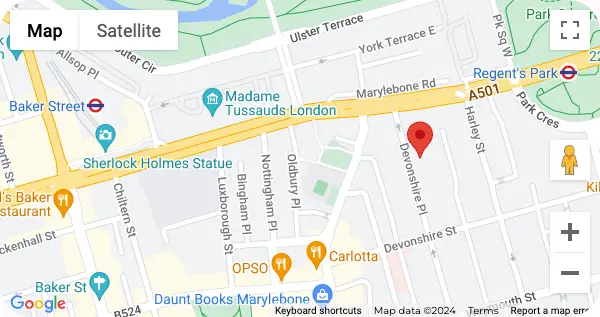Common side effects of Mounaro include a little nausea and diarrhoea. Rare but serious risks include pancreatitis and gallbladder disease. Undertaking a blood test before going forward helps spot small problems before they become large issues.
Dr Mike Tee
BSC, MB, BCHIR, DLO, DRCOG, MRCGP
GMC: 3118018
Introduction
It is important to understand what to expect when you are about to start Mounjaro or you are already taking it. Though this drug can be beneficial in controlling type 2 diabetes and aiding in weight loss, it also has its own set of side effects, some of which are mild while others are more serious.
In this guide, we break it down, summarizing everything from the familiar risks like injection site reactions, nausea and constipation, to some of the less common but potentially serious risks like pancreatitis. We also explain how long these effects might last, what to do if you stop taking Mounjaro, and when you should call your doctor. And you will get practical strategies to help handle side effects and keep your health on track.
Whether you are new to Mounjaro, or in search of better understanding with Mounjaro for a long term treatment, this article will make sure to assist you, the best.
What is Mounjaro?
Mounjaro is a dual action GLP-1 and GIP receptor agonist developed by Eli Lilly. The drug is FDA-approved and also authorised by the Medicines and Healthcare products Regulatory Agency (MHRA) in the UK for type 2 diabetes. Mounjaro does so by controlling blood sugar and lowering hunger, and it has been gaining popularity for weight loss particularly in those who have cardiovascular disease and other conditions associated with being overweight or obese.
It is meant to be administered once a week by subcutaneous injection and used along with lifestyle interventions including diet and exercise. Lifestyle management is fundamental to successful diabetes care, and drugs such as Mounjaro help promote long-term metabolic well-being.
How Does Mounjaro Work?
Tirzepatide acts like two of the body’s natural hormones, GLP-1 (glucagon-like peptide-1) and GIP (glucose-dependent insulinotropic polypeptide). These hormones are secreted by the gut in response to food and contribute to lower blood sugar levels by:
- Auto-releasing insulin whenever blood sugar is elevated.
- Lowering glucagon (a hormone that raises blood sugar).
- Slowing gastric emptying.
- Increasing satiety (the feeling of fullness).
In clinical trials published in the New England Journal of Medicine 2022, tirzepatide showed much superior results to semaglutide in terms of reducing HbA1c and appropriately supporting weight loss.
Common Side Effects
You are probably more likely to get side effects in a few weeks of Mounjaro treatment, when your body is adjusting to the new medicine. The vast majority of these effects are short-term and can be dealt with by simple lifestyle changes.
Gastrointestinal Issues (Nausea, Vomiting, Diarrhea)
The most common adverse effects are gastrointestinal, including:
- Nausea: Nausea is usually mild to moderate and improves with time.
- Vomiting: Less common and might take place, particularly in case of a dose increase.
- Diarrhoea: Could be related to your digestion slowing down or changes in gut bacteria.
Management Tips:
- Stick to bland, low-fat meals
- Avoid drinking alcohol, caffeine and heavy meals.
- Eat small and frequent meals.
- Don’t lie down immediately after eating.
If experiencing severe pain that does not go away, see your doctor. Medications such as ondansetron for antiemesis may be prescribed.
Constipation and Dehydration
Due to delayed emptying of the stomach, some people also experience:
- Constipation: Can cause bloating and discomfort.
- Dehydration: May occur if you have not been drinking enough or if you have severe vomiting or have diarrhoea.
How to Prevent:
- Drink 1.5 to 2 liters of water each day.
- Include soluble fibre e.g. oats, psyllium or chia seeds.
- Mild exercise like walking helps with bowel action.
Related Resource: NHS information on constipation
Burping and Indigestion
You may notice:
- Frequent burping.
- Mild bloating or acid reflux.
- These are often temporary and can be managed.
Relief Strategies:
- Avoid carbonated beverages.
- Have a moderate portion and do not eat too much; eat slowly while chewing well.
- Elevate your head at bedtime and sleep on your side to help reduce acid reflux.
Long-Term Side Effects
While most users tolerate Mounjaro well, long-term effects can manifest, particularly with regular use.
Headache and Fatigue
Aside from the hangover, headaches also can be caused by diet and lifestyle changes, hydration and blood sugar. Fatigue can occur due to:
- Affected by caloric restriction, particularly in weight loss.
- Electrolyte imbalances.
- Low blood sugar levels episodes.
Suggestions:
- Prepare nutritious meals.
- Monitor your hydrating and blood glucose.
- Take what rest you require, but do not forget to eat.
Muscle Pain and Dizziness
The following side effects are common, but they have a potential impact on some individuals:
- Some signs of muscle discomfort or cramping may be associated with nutrient deprivation or a lack of exercise.
- Dizziness may also be a sign of low blood pressure or dehydration.
Tips:
- Track your minerals (magnesium, potassium).
- Avoid standing up too quickly.
- See your GP if symptoms interfere day-to-day life.
Anxiety and Mood Changes
The gut brain axis controls many aspects of mood. Since GLP-1 drugs affect gut hormones, these may happen for some patients:
- Mood swings.
- Mild anxiety or irritability.
They can be worsened by reduced calories or changing blood sugar levels.
Mental Health Tips:
- Journal and log mood changes.
- Do something to reduce the stress, such as yoga or meditation.
Heart Rate Changes
Resting heart rate GLP-1 agonists like Mounjaro can cause a small increase in resting heart rate. Though not likely to be risky, this can be troublesome in someone with underlying heart disease.
Monitor for:
- Palpitations.
- Unexplained fatigue.
- Rapid heartbeat at rest.
Note: Trends can be tracked with a wearable device or smart monitor. Tell your doctor if persistent abnormalities occur.
Withdrawal Symptoms
Stopping Mounjaro may cause you to have withdrawal symptoms, and your body may become used to not having appetite control and slower digestion.
Effective & professional doctor-led Mounjaro at our central London clinic
Verified Before & After
Verified Before & After
Increased Appetite and Weight Gain
GLP-1 and GIP cause hunger reduction. After stopping Mounjaro:
- You might feel even hungrier than when you started.
- The initial weight loss can be regained without any lifestyle intervention.
Prevention Strategies:
- Adopt a calorie organized meal plan.
- Centre around protein, healthy fats and fibre.
- Workout regularly (i.e., resistance training, to maintain lean body mass).
Mood Swings and Anxiety
You may have hormonal shifts after stopping Mounjaro, which in turn can impact your mood:
- Irritability or frustration.
- Anxiety or low motivation episodes.
Coping Tools:
- Talk therapy or counselling.
- Staying socially active.
- Taking magnesium or omega-3s with a doctor’s supervision.
Digestive Issues Post-Discontinuation
Some people are reporting a return of digestive symptoms:
- Gas or bloating, constipation.
This transition can be smoothed by gradual tapering and by continued good habits.
What Helps:
- Gradually reintroduce fibrous foods.
- Probiotics may help keep your own gut in balance.
- Stay active and hydrated.
Short-Term vs. Long-Term Effects
Short-term side effects like nausea and dyspepsia are usually resolved within 2 to 4 weeks. Longstanding or chronic symptoms like mood swings or muscle pain may persist, needing individualised care.
Factors Influencing Duration
- Genetic factors>
- Underlying medical conditions.
- Consideration on hydration, diet and sleep quality.
- Dosage and titration speed.
If you have ongoing symptoms, you should talk to your doctor. You may need lab tests or dosage adjustments.
When to Seek Medical Attention
Though many side effects are mild, some need urgent care.
Severe Allergic Reactions
Symptoms of a serious allergic reaction (anaphylaxis) include:
- Swelling on the lips, face, tongue, throat.
- Trouble breathing.
- Intense rash or itching.
If they do happen, call an ambulance straight away.
Signs of Pancreatitis or Gallbladder Issues
If you have very severe abdominal pain, Mounjaro might be able to cause pancreatitis and acute gallbladder disease to some extent. Get medical emergency help if you have:
- Severe stomach pain that may go to your back.
- Severe nausea and vomiting that won’t stop.
- Yellow skin or eyes (jaundice).
Read more: Pancreatitis (NHS)
Kidney Damage
Rarely, Mounjaro may impact on your kidneys if you have kidney disease before starting treatment. Symptoms may include:
- Less urine passed, or less often urination.
- Legs, ankles or feet swell up.
- Fatigue and confusion.
Hypoglycemia
Especially when taken in combination with other diabetes drugs such as insulin, Mounjaro could result in low blood sugar. Symptoms and signs of hypoglycemia may include:
- Shakiness or trembling.
- Trouble focusing or confusion.
- Excessive sweating.
- Light-headedness or fainting.
Thyroid Cancer (Potential Risk)
Although the risk of developing thyroid cancer has yet to be confirmed in clinical trials, animal studies have raised this issue. Be alert for:
- Lump or swelling in the neck.
- Hoarseness or voice changes.
- Trouble swallowing.
- Persistent throat discomfort.
Dietary Adjustments
A balanced, healthy diet can help ease numerous gastrointestinal symptoms:
- Opt for lean proteins (e.g., chicken, tofu).
- Organic soluble fibres as found in (oats, bananas).
- Stay away from highly processed fattening foods.
Hydration and Exercise
- You should have a minimum of 6 to 8 cups of water every day.
- Gentle exercise helps moderate digestion and mood.
- Do not do anything too intense if feeling nauseous or tired.
Consulting Healthcare Providers
Your health care team is there to help you manage side effects:
- Your GPs might change your dosage, or suggest other treatments.
- Dietitians can help you get the best out of your nutrition plan.
- Long-term metabolic health can be followed by the endocrinologists.
Conclusion
Mounjaro is a rewarding experience for those trying to keep type 2 diabetes under control or lose enormous amounts of weight. But, like any medicine, it can cause side effects, most of which are mild or temporary. You can optimize your treatment and minimise discomfort by being well-informed and working closely with your healthcare provider.
If you have any strange or persistent symptoms, do not hesitate to speak to your doctor. Knowing what to expect and the game plan, you can use Mounjaro effectively and with confidence.
FAQs
- What are the most common side effects of Mounjaro?
Some of the more common side effects are nausea, vomiting, diarrhoea, constipation, belching, and indigestion. These are generally in early treatment, and are usually mild. These are due to slower digestion and will usually get better as your body gets used to it. To prevent these symptoms simply stay hydrated and eat small meals.
- Are there serious risks associated with Mounjaro?
Yes, although rarely, Mounjaro can lead to pancreatitis, gallbladder problems, kidney problems or allergic reactions. Look out for severe belly pain, constant nausea, swelling, trouble breathing or the skin turning yellow. Regular check-ups will help screen for complications.
- How long do Mounjaro side effects last?
The majority of adverse effects are temporary and subside within 2 to 4 weeks. Symptoms such as fatigue or constipation may continue for longer, especially with dose escalation. Rare but severe side effects should be treated and taken care of quickly.
- What withdrawal symptoms might occur after stopping Mounjaro?
Stopping Mounjaro may result in enhanced appetite, weight gain, changes in mood, and digestive problems. These withdrawals can be controlled with a slow taper, good nutrition, exercise, and emotional support as necessary.
- When should I consult a doctor about Mounjaro side effects?
Get immediate medical care if you have a very bad side effect symptom, jaundice, an allergic reaction, or side effects that bother you or do not go away. Never make changes to your regimen without your doctor’s approval.>
- Can Mounjaro affect my mental health?
A few users say that they deal with mood swings, anxiety, or simply seem to have little energy to do anything while on Mounjaro. Such effects could have to do with changes in blood sugar, appetite or gut hormones. If your mood shifts persist and disrupt your life, talk to your doctor or mental health professional.
- Is Mounjaro safe to use with other medications?
Drug interactions with other diabetes medications such as insulin and sulfonylureas, possibly increased risk of low blood sugar. Always tell your doctor about all the drugs, herbs and vitamins you are taking to rule out possible interactions.
- Does Mounjaro affect fertility or pregnancy?
There is not much research available on Mounjaro’s effects in pregnant or lactating women, nor its potential impact on fertility. If you are pregnant, nursing or trying to become pregnant, please consult your healthcare professional before using Mounjaro.
Reserve a GLP-1 appointment
One of our experts will be more than happy to answer any questions you have.
Book AppointmentEsther Winklehner
★★★★★
As someone who has struggled with acne for years, coming into Harley Street Skin has been an amazing experience. So professional and so helpful!
5th February 2026
Arian Nik
★★★★★
Rosa was amazing and thank you so much to Paula for looking after me x
3rd February 2026
Lucy McCadden-Forrest
★★★★★
Dr Glancey was great - very thorough and provided a perfect service and after care
5th February 2026












